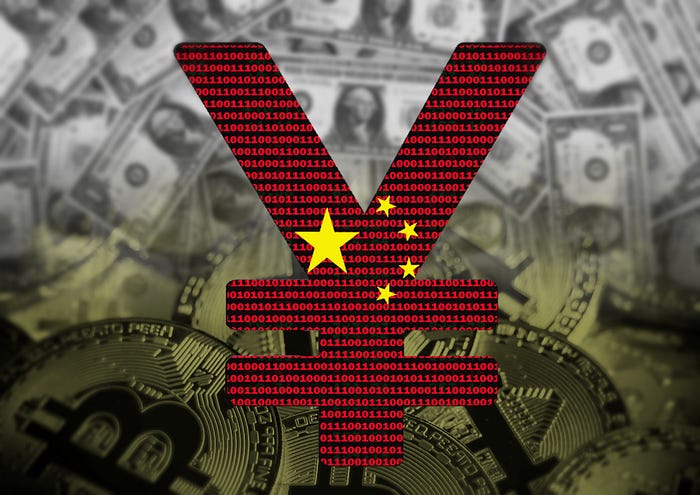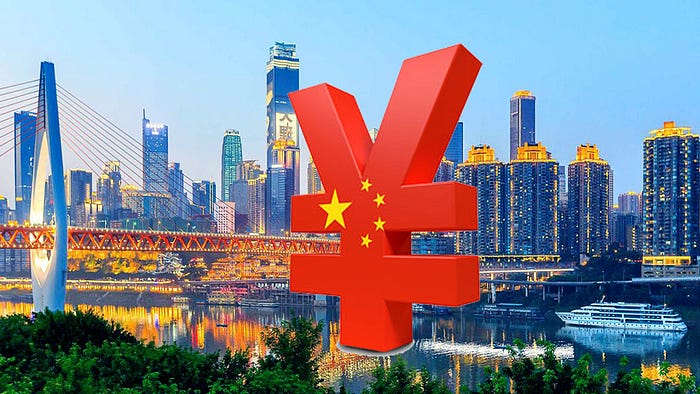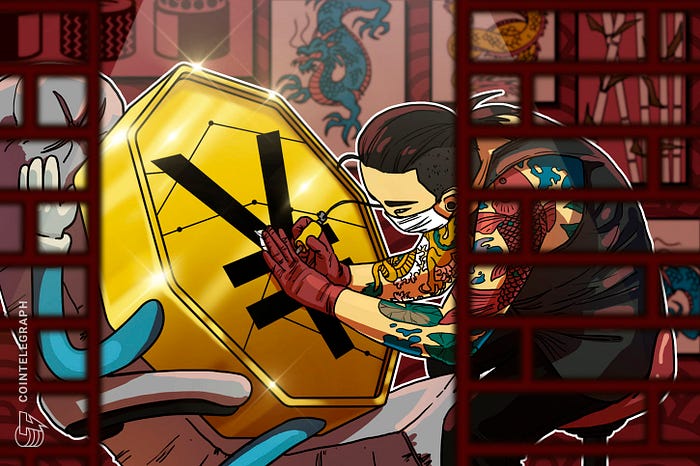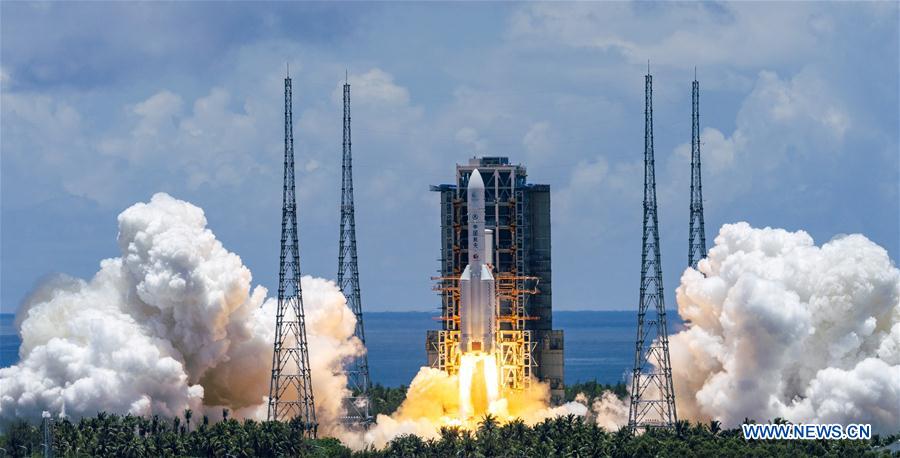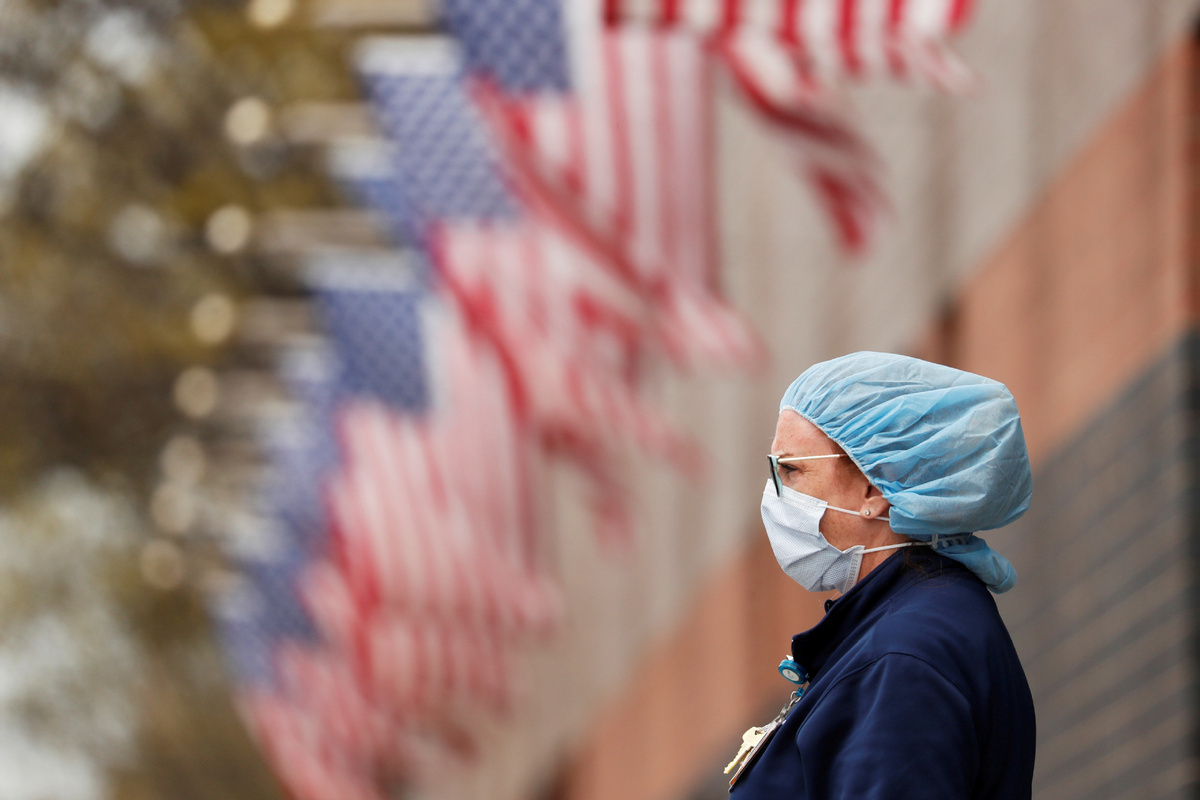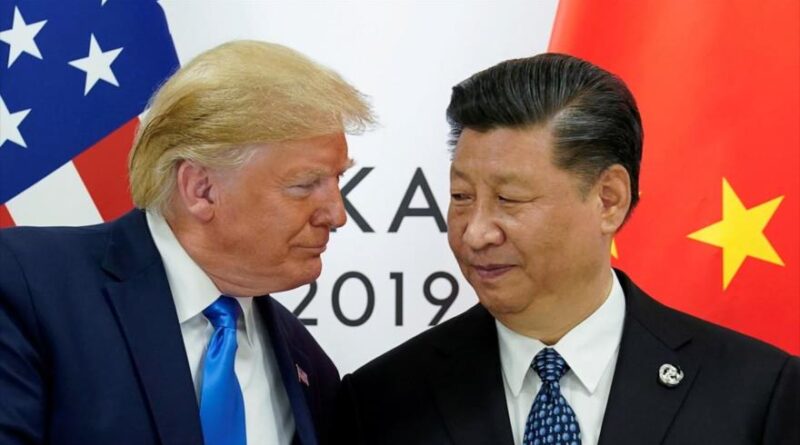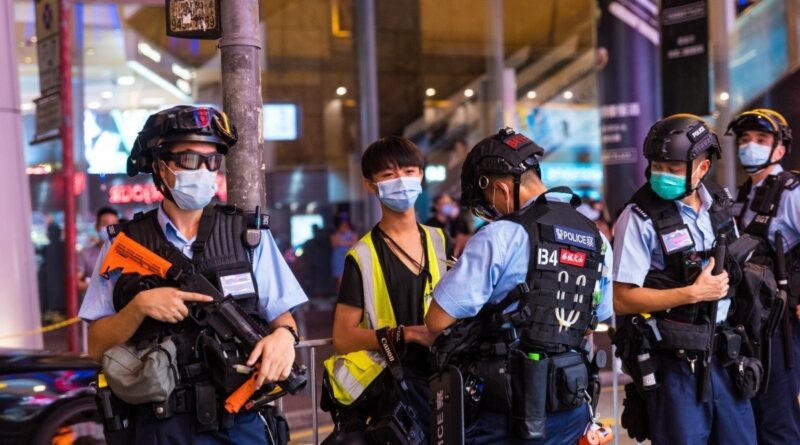Xi Jinping: on the new horizons of contemporary Marxist economic policy
In n. 12/2020 of the Qiushi magazine an important speech by Secretary General Xi Jinping was published, structured in twelve questions and answers, entitled ' Ceaselessly exploring the new horizons of contemporary Marxist economic policy' . This speech was given by Xi Jinping on November 23, 2015 at the 28th Collective Study [1] of the 18th Politburo on the basic principles and methodology of Marxist economics. [...]

QUESTION 1: WHY STUDY MARXIST POLITICAL ECONOMICS?
The purpose of organizing this study is to strengthen the study and understanding of the fundamental principles of Marxism. Through the revision of the Marxist political economy, we must deepen our understanding of the laws of economic development and improve our ability to guide China's economic development.
Now, during the mutation of the world economy, being able to steer well the great ship of our country's economy is an important test for our party. Coping with the complex national and international economic situation and the different economic phenomena, learning the basic principles and methodology of Marxist political economy will help us to master the methods of scientific economic analysis, understand the process of economic movement, master the laws of social development and economic, improve the ability to control the socialist market economy and better answer the theoretical and practical questions of China's economic development.
QUESTION 2: WHAT IS THE MEANING OF THE MARXIST POLITICAL ECONOMY?
Marxist political economy is an important part of Marxism. It is also a necessary subject for us to adhere to Marxism and develop it.
Based on the world view and methodology of dialectical materialism and historical materialism, Marx and Engels criticized and continued the ideological achievements of classical economics, particularly the British one, and founded Marxist political economy through in-depth research on human economic activities. This has made us aware of the laws of economic movement in human society and especially in capitalist society. Engels affirmed that "all the theories of the proletarian party derive from the study of political economy". Lenin regarded political economy as "the deepest, most complete and detailed proof and application" of Marxist theory.
There are currently various types of economic theories, but the foundation of our political economy can only be Marxist political economy, not other economic theories.
QUESTION 3: IS MARXIST POLITICAL ECONOMY OBSOLETE ?
Some people believe that the Marxist political economy is obsolete and that ' Capital ' is obsolete. This conclusion is arbitrary and wrong.
Putting Marxist political economy aside, from the point of view of the international financial crisis, many capitalist countries have continued to suffer from economic recessions, severe unemployment problems, greater polarization and deepening social conflicts. The facts show that the intrinsic contradiction between the socialization of production and the private possession of the means of production still exists in capitalism, but the ways in which they are expressed and the characteristics of this contradiction have differentiated.
After the international financial crisis, many Western scholars are also re-studying Marxist political economy and ' Capital ' to reflect on the disadvantages of capitalism. Last year, ' Capital in the 21st century', written by French scholar Thomas Piketty, has sparked widespread discussion in the international academic community. He used detailed data to show that the degree of inequality in the United States and other Western countries has reached or exceeded the highest level in history. Piketty believes that uncontrolled capitalism has exacerbated wealth inequalities and that it will continue to deteriorate. His analysis was carried out primarily in the field of distribution and did not involve much more fundamental ownership issues, but the conclusions he reached deserve our deep consideration.
QUESTION 4: IN THE STUDY, RESEARCH AND APPLICATION OF THE MARXIST POLITICAL ECONOMY, WHAT RESULTS HAS OUR PARTY GET?
Comrade Mao Zedong has studied ' Capital ' four times and has hosted several seminars on the ' Manual of Political Economy'Soviet, emphasizing that "the study of questions of political economy has great theoretical and practical significance". He creatively proposed a new democratic economic program during the 'New Democracy' period. In the process of exploring the road of socialist construction he advanced original visions on the development of our country's economy, such as the theory of the basic contradiction of socialist society, general planning, attention to global balance, agriculture as a foundation , industry as a driving factor, its coordination with agriculture and the development of light and heavy industry. This is the creative development advanced by our party in Marxist political economy.
Since the third plenary session of the 11th Party Central Committee, our party has combined the fundamental principles of Marxist political economy with the new practice of reform and openness to continuously enrich and develop Marxist political economy. After the approval of the ' Decision of the Central Committee of the Chinese Communist Party on Reform of the Economic System ' in October 1984, Comrade Deng Xiaoping commented: “I have written a first draft of political economy, which is a political economy that combines the fundamental principles of Marxism and the practice of Chinese socialism ”.
For more than 30 years, with the continued deepening of reforms and openness, we have achieved many important theoretical achievements in contemporary Chinese Marxist political economy, such as theories about the nature of socialism, the basic economic system in the primary stage of socialism and the theories on the definition and implementation of an innovative, coordinated, ecological and shared development; the development of a socialist market economy, which allows the market to play a decisive role in the allocation of resources and gives a better game to the role of government; the theories on the economic development of China entering a new normal. Theories on promoting the coordination of new industrialization, computerization, urbanization and agricultural modernization, theories on the characteristics of property, the rights to procure and manage land contracted by farmers and theories on how to make good use of the two markets, national and international; theories about the promotion of equity and social justice and the gradual realization of a common prosperity for all the people,etc .
These theoretical results were not discussed by the classical Marxist writers and we had no practice and knowledge in this area before the reform and opening up . They are political economies that adapt to national conditions and the characteristics of the times in contemporary China. Not only have they strongly guided China's practice of economic development, but they are also pioneers of the new boundaries of Marxist political economy.
QUESTION 5: HOW TO JOIN THE THOUGHT OF DEVELOPMENT CENTERED ON THE PEOPLE?
People-centered development is the fundamental position of Marxist political economy.
Marx and Engels stressed: "The proletariat movement is the movement for the independence and well-being of the vast majority of the population." In the future, "production will aim for the prosperity of all people". Comrade Deng Xiaoping stressed that the essence of socialism is to liberate and develop productive forces, to eliminate exploitation and polarization, and ultimately to achieve common prosperity.
The Fifth Plenary Session of the Eighteenth Central Committee of the Communist Party of China clearly stated that it is necessary to adhere to the concept of people-centered development, promote their well-being and make steady progress in the direction of common prosperity as the starting point and goal of economic development. We must never forget this point: we must firmly adhere to this fundamental position when we distribute economic work, formulate economic policies and promote economic development.
QUESTION 6: HOW TO PERSIST IN LEADING AND PROMOTING THE ECONOMIC DEVELOPMENT OF CHINA WITH NEW CONCEPTS OF DEVELOPMENT?
In response to the new changes in China's economic development context […], the Fifth Plenary Session of the Eighteenth Party Central Committee proposed establishing and adhering to the concepts of innovative, coordinated, ecological, open and shared development .
These five development concepts are based on a deep synthesis of the experience and lessons of domestic and foreign development and an in-depth analysis of the general trend of it. They collectively reflect our party's new understanding of the laws of Chinese economic development and are intertwined with Marxist views of political economy. The points of view are the same. For example, Marx and Engels imagined that in the future society "all people share the benefits created by all", "people are directly natural beings" and "natural history and human history limit each other".
At the same time, these five development concepts are also a sublimation of the perceptual knowledge we have acquired in promoting economic development and a theoretical synthesis of our practice of promoting it. We must persist in using the new concepts to guide and promote China's economic development.
QUESTION 7: WHY It SHOULD SUPPORT AND IMPROVE THE ECONOMIC BASE OF THE SOCIALIST?
Marxist political economy believes that ownership of the means of production is the heart of the relations of production and determines the fundamental nature and direction of the development of society.
After reform and opening up, our party summarized both positive and negative experiences, established the basic economic system for the primary stage of socialism, emphasized adherence to public property as a pillar and the common development of multiple proprietary models and made it clear that both publicly owned and non-public economies are socialist market economies.
We need to firmly consolidate and develop the public sector of the economy, encourage, support and lead the development of the non-public sector and promote various ownership systems to complement each other's strengths, promoting and developing them synergistically. At the same time, we must be very clear that China's basic economic system is an important pillar of the socialist system with Chinese characteristics and the foundation of the socialist market economic system. The dominant position of public ownership cannot be shakenand the leading role of the state economy cannot be shaken. This is an institutional guarantee to ensure that people of all ethnic groups in our country share the fruits of development, but also an important guarantee to consolidate the party's government position and join the Chinese socialist system.
QUESTION 8: HOW TO UNDERSTAND THE CHINESE DISTRIBUTION SYSTEM?
Marxist political economy believes that distribution is determined by production [ … ] Starting from the reality of our country, we have established a method whereby distribution based on work is the main way and in the meantime other ways of distribution coexist.
Practice has shown that this institutional set-up is able to mobilize enthusiasm from all directions and promotes overall efficiency and balance. For various reasons, there are still some outstanding problems in our country's income distribution, mainly the growing income gap, the low proportion of work pay in the primary distribution and the low proportion of residents' income in the national income distribution. In this regard, we must attach great importance to efforts to promote the synchronization of income growth of residents with economic growth, increase in labor remuneration and increase in labor productivity, continue to improve systems, mechanisms and specific policies,income gap .
QUESTION 9: HOW TO SUPPORT AND IMPROVE THE ECONOMIC SYSTEM OF THE SOCIALIST MARKET?
The development of a market economy under socialist conditions is a great pioneering work of our party.
A key factor in the great success of China's economic development is that we have not only brought into play the strengths of the market economy, but also the advantages of the socialist system. We are developing a market economy under the main premise of the leadership of the Chinese Communist Party and the socialist system. We must never forget "socialism" is the modifying attribute.
The reason for saying that this is a socialist market economy is to support the superiority of our system and effectively prevent the disadvantages of the capitalist market economy. We must insist on dialectics and the "theory of two points [2] ", continue to work hard on the combination of the basic socialist system and the market economy, and give the maximum advantage to both. We must not only achieve an "effective market", but also a "promising government", and strive to solve this global economic problem in practice.
QUESTION 10: WHY It JOIN THE NATIONAL POLICY FOR OPENING?
Marxist political economy believes that human society will eventually pass from the history of all individual nations to the history of the world.
At the moment, our country has close ties to the world like never before. The influence of our economy on the world economy and the influence of the world economy on our economy are unprecedented. In the conditions of the development of economic globalization, we cannot engage in construction behind closed doors, but we must be good at coordinating the overall national and international situations and make good use of the two markets, domestic and foreign.
It is necessary to follow the trend of the Chinese economy to integrate deeply into the world economy, develop a higher level open economy, actively participate in global economic governance and promote the development of the international economic order in the direction of equality, justice and win - win cooperation . At the same time, we must resolutely safeguard China's development interests, actively protect ourselves from various risks, and ensure national economic security. There are many theoretical and practical issues that require in-depth study.
QUESTION 11: WHY DOES THE CONTEMPORARY CHINESE SOCIALIST POLITICAL ECONOMY TAKE SPECIAL LESSONS?
We adhere to the basic principles and methodology of Marxist political economy and do not exclude reasonable elements of foreign economic theories.
Knowledge of the Western economy in matters of finance, prices, currency, markets, competition, trade, exchange rates, industries, businesses, growth, management, etc. , reflects the general laws of socialized mass production and the economy of market and should be used as a reference.
At the same time, unlike the foreign economy - especially the Western economy - we must insist on separating the wheat from the chaff, removing the falsehood and preserving the truth. We cannot copy the contents that reflect the attributes and values of the capitalist system and the substance that has the ideological color of the West.
Although economics is the study of economic issues, it cannot be separated from social policy. In teaching economics we must continue to talk about Marxist political economy and the political economy of socialism in contemporary China should talk about it in a big way, without marginalizing it.
QUESTION 12: HOW TO CONTEMPORARY OPENING NEW HORIZONS OF THE CONTEMPORARY CHINESE MARXIST ECONOMY?
For Marxist political economy to have vitality, it must advance with the times.
Practice is the source of theory. It took us decades to complete the development process that developed countries have gone through for hundreds of years. China's economic development process is magnificent and its achievements have attracted worldwide attention. It contains great motivation, vitality and potential for theoretical creation.
At present, both the world economy and the Chinese economy are facing many big new questions, which require scientific theoretical answers. Based on China's national conditions and our development practices, we must thoroughly study the world economy and the new conditions and problems facing the Chinese economy, reveal new features and new laws, refine and summarize the results of the practice of Chinese economic development and update practical experience to systematization. The theory of economics in China continues to open new horizons to contemporary Chinese Marxist political economy and contributes to Chinese wisdom, innovation and development of Marxist political economy.
[1] Collective study (集体 学习) is an extremely important practice for the leadership of the Chinese Communist Party. Since the days of the Yan'an Soviet (延安 時期), the Central Committee of the Communist Party of China has established a central study group and a central group of senior cadres to guide cadres in the study of Marxism. Falling into disuse in the following decades, the collective study was taken up by Liu Shaoqi and Zhou Enlai in study groups on economic subjects. Only with Deng Xiaoping did the CCP Central Committee Secretariat resume holding various lectures and conferences on economic, scientific and legal knowledge. For more information, see:
https://chiculture.org.hk/en/china-today/1972
[2] The theory of two points, or ' dichotomy theory ', was developed by Mao Zedong in the speech ' On the ten major relations'held on the occasion of an enlarged session of the political office of the Chinese Communist Party on April 25, 1956. It is based on the relationship between the primary and secondary contradiction and the relationship between the primary and secondary aspects of the contradiction. The primary and secondary contradictions are interrelated and interdependent, influencing each other and transforming one into the other under certain conditions. The primary and secondary aspects of the contradictions are realized instead in the unity of opposites, which are mutually exclusive and implicate. The main aspect of the contradiction defines the nature of things and the main contradiction solves the problem about the development of things. Mao urges the Chinese Communists to "examine the problems comprehensively and completely".See on the topic 'On contradiction' .
Translation and notes by Davide Clementi
Original article: 12 个 问答 , 一起 学习 习近平 总书记 关于 马克思 主义 政治 经济学 重要 讲话
https://ottobre.info/2020/08/27/xi-jinp ... emporanea/
Google Translator




